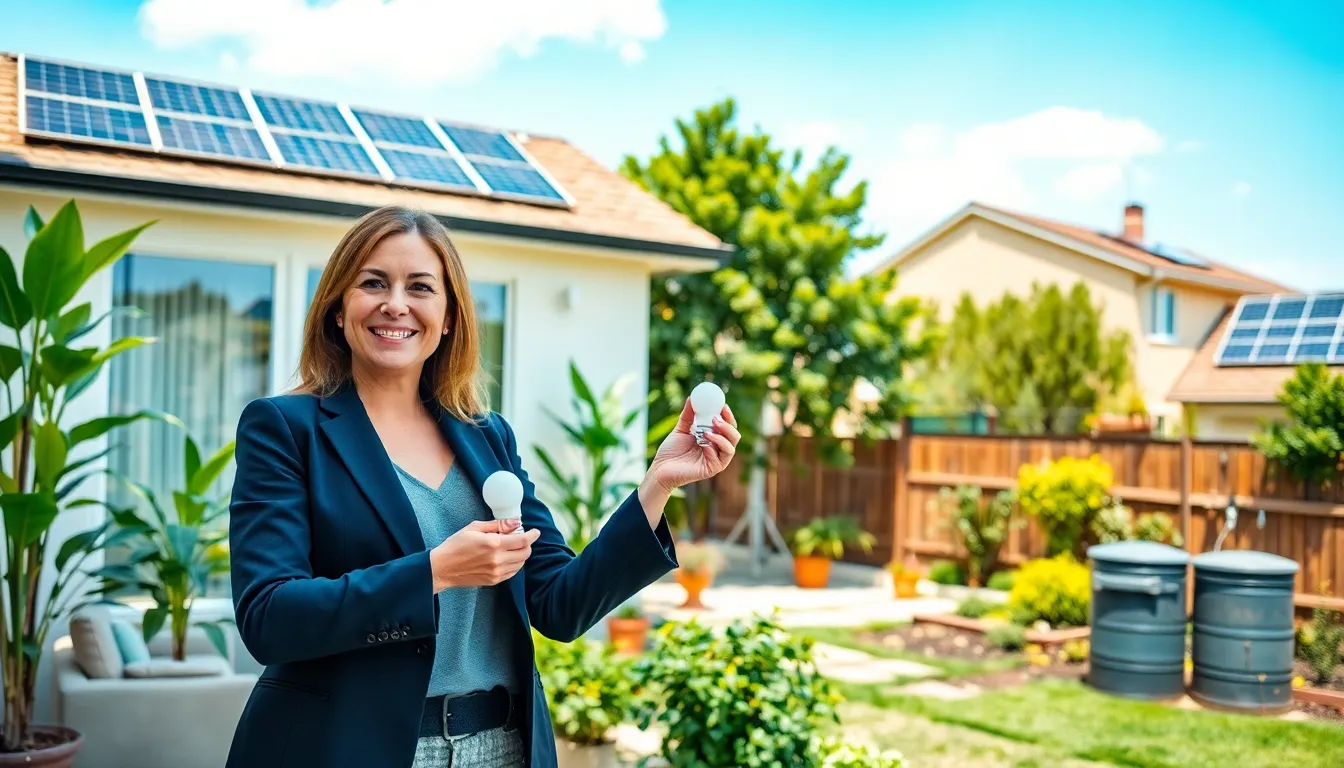Table of Contents
ToggleSustainable living solutions aren’t just a trend: they’re a delightful way to hug the planet tighter while saving some cash. Imagine ditching high utility bills and unnecessary waste while still living your best life. Sounds like a dream? It’s totally achievable. You might be thinking, “Oh no, not another article telling me to compost my kitchen scraps.” But fear not: this guide isn’t about turning you into a granola-eating hermit. Instead, it’s about simple, practical changes anyone can make to live sustainably without losing their flair. Buckle up as we jump into the world of sustainable living solutions.
Understanding Sustainable Living

The Importance of Sustainability
Sustainability is about meeting current needs without compromising the ability of future generations to meet theirs. As environmental issues loom large, the push for sustainable living becomes incredibly significant. It’s not just about using less: it’s about changing how we think and act. When one considers the long-term effects of their choices, they lean towards solutions that benefit not just themselves but the planet.
Key Concepts in Sustainable Living
Several principles guide the way toward sustainable living. First, reduce, reuse, and recycle, these simple steps urge individuals to think twice about what they buy and how they dispose of it. Also, understanding the carbon footprint of daily choices helps in making informed decisions. Sustainable living isn’t an all-or-nothing scenario: it’s a journey that encourages gradual and thoughtful lifestyle changes.
Practical Sustainable Living Solutions
Home Energy Efficiency
Enhancing energy efficiency at home is a straightforward way to embrace sustainable living. Simple changes, like switching to LED lighting or using smart thermostats, can significantly cut energy usage. Also, sealing drafts in windows and doors can keep homes cozy while reducing the need for excessive heating or cooling. Everyone enjoys a comfortable home, right? Why not make it environmentally friendly too.
Water Conservation Techniques
Water is precious, and conserving it is vital. Using low-flow faucets and showerheads can significantly reduce water usage without sacrificing comfort. Besides, capturing rainwater for garden irrigation provides a double whammy: it helps conserve municipal water supplies while keeping plants happy. It’s about being resourceful and appreciating every drop.
Waste Reduction Strategies
Waste reduction plays a key role in sustainable living solutions. One effective strategy is adopting a zero-waste lifestyle, starting with small steps like carrying reusable bags and containers. Composting organic waste is another fantastic way to reduce landfill contributions. It turns food scraps into nutrient-rich soil, closing the loop on the food cycle. Who knew trash could become treasure?
Sustainable Transportation Options
Eco-Friendly Travel Tips
Transportation choices impact the environment immensely. Opting for public transit, carpooling, or even biking not only cuts down on emissions but can also be a fun adventure. Consider electric or hybrid vehicles if driving is a must. Planning trips efficiently can further reduce vehicle use, making it a win-win for wallets and the planet. Who doesn’t enjoy saving gas money while helping Mother Earth?
Promoting Local and Organic Consumption
Supporting Sustainable Businesses and Practices
Choosing to support local farmers and businesses fosters a sustainable economy. Local products require less transportation, reducing carbon footprints while also offering fresher options. Farmers’ markets are treasure troves for organic and sustainable goods. By handpicking products, individuals not only help the environment but also contribute to their community’s economy. Isn’t it amazing how well we can eat while being kind to the planet?
Community Initiatives for Sustainability
Participating in community initiatives amplifies the impact of individual efforts. Neighborhood clean-up days or local recycling programs can foster a sense of community while promoting sustainability. Residents can collaborate and share resources, paving the way for more extensive changes. Community gardens are another fantastic way to engage with others while championing local food production.




